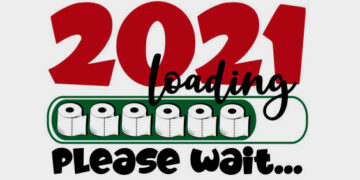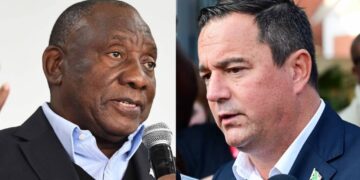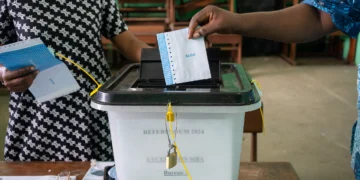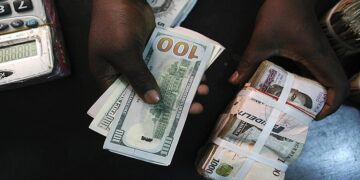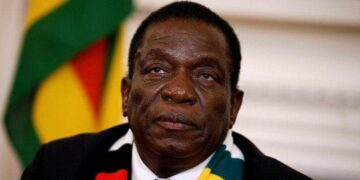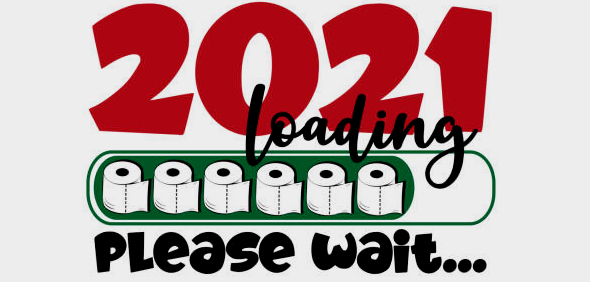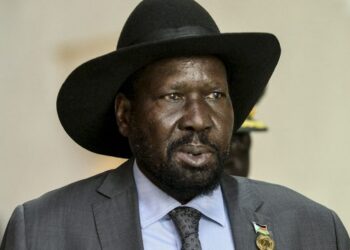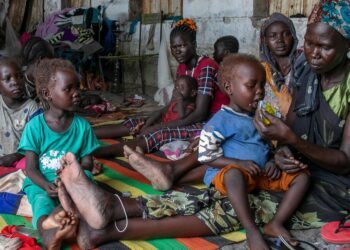“May we never see another year like 2020”. That is the ardent wish of 99.9 percent of Nigerians, fashioned into a prayer. Virtually everyone is wishing that 2020, now less than 48 hours, passes by quickly so that it can be consigned to the trash bin of history to be recalled in memory only occasionally in passing remembrance.
Most people do not even want to recall this winding year as it is replete with sad memories; memories that have left an indelible impression on us because of its resounding bang as it thumbs unrelentlessly in its march from its early weeks as we watched in wonderment and supplication. Whatever be the deep emotions it wrought on us, one thing is clear and true for all of us – we are all eager to see this year roll off as quickly as possible, to turn its husky back on us as we are in a hurry to bid it goodbye.
Without any empirical evidence though, we are all hoping that 2021 would be better than this year, desperately hoping/wishing for it. It is in the nature of human beings to keep hope alive and imagine better days are ahead as a shield of sorts to weather storms.
And so one can say without any iota of doubt that the last Sunday of December/ the first Sunday of January 2021 ditto the last/first Friday would witness an unprecedented number of persons at worship places nationwide in relief that this year is finally ebbing away and in expectation that 2021 would be better. There was a similar expectation when 2020 was being ushered in. Alas, after the New Year festivities we began to hear of a coronavirus that was already wrecking havoc in Wahum, China, leading to complete lockdown of that city.
We considered it a rumour, generally speaking, and believed that it cannot get to us, not only because of the huge physical gulf between us and China but also more importantly we believed our genes are stronger than those of the white man and so can better withstand any foreign virus because we have generally survived many an illness notwithstanding our ‘messy’ environment, poor nutrition and general poverty levels including ill-equipped hospitals/clinics. So, the average Nigerian lived in denial, conjuring conspiracy theories about the disease, explaining off those who died of the virus as having been killed by some other underlying illnesses such as diabetes, stroke and the likes. This is the case with Kogi and Cross River states, which governments continued to insist that they did not have a single case of coronavirus.
As at the morning of Tuesday, December 15, the Nigerian Centre for Disease Control confirmed 73, 374 cases with 66,314 patients discharged and 1,197 deaths recorded in all “36 states and the Federal Capital Territory”. We managed to celebrate St. Valentine Day.
But by the end of February, our lives took an unexpected turn and we are yet to fully recover from its effects both individually and collectively as a nation. This is because one foreigner imported the virus to our shores and others were subsequently infected in geometric progression. Thereafter, the country soon joined other countries of the world in imposing a total lockdown for weeks. We could not step outside of our houses, freely mix with others or travel anywhere.
For Nigerians that mostly live on a daily income basis, it was hell of a sort as they were grounded. Small, medium and large scale businesses, unemployed, underemployed and even the employed were adversely affected as prices of consumer goods and others skyrocketed due to non production worldwide during months of the lockdown. Marriage plans and other social activities were disorganised, put on hold. Physical church and Friday Jumaat congregations were banned. Moslem and Christian pilgrimages for this year were cancelled.
Our social lives became altered as new COVID-19 safety protocols emerged such as social distancing, frequent washing of hands and mask-wearing. Although the pandemic is now easing off in our country as per the current statistics, these protocols are still being observed in government establishments, at least.
Over a thousand persons have been killed by the pandemic and hundreds of others in isolation. Notable among which are the former Chief of Staff to President Muhammadu Buhari, Abba Kyari, whose death more or less changed the complexion of the president’s kitchen cabinet, former Oyo state governor Ajumobi who was primed to be the ruling party’s chairman, billionaires and others. And now the country has gone into recession with dire economic consequences for all as the naira is devalued with concomitant debilitating results.
The newspaper industry was also hit with serial deaths of notable proprietors, the latest being Sam Nda-Isiah, founder of Leadership newspapers, Isa Funtua former, president of the Newspapers Proprietors Association of Nigeria (NPAN), Chairman of Peoples Daily newspapers, Wada Maina, and so on and so forth; not to talk of passing on of several other journalists across the land. Publisher of this newspaper, Blueprint, Mohammed Idris, is now the secretary of NPAN.
Insecurity continues to haunt us even as the security agencies continue to do their best in the face of inadequate personnel, materials and poor remuneration. The insurgents in the North-east continue to strike at what is called ‘soft targets’, maiming and killing people.
Kidnappings and abduction for ransom continue to happen, even outright murders as in the case of the APC chairman in Nasarawa state, Phillip Shekwo, etc., etc. Only recently some students of a school in Katsina state were kidnapped, leading to the government ordering the closure of all schools. This is a rather daring act, happening at a time when the commander-in-chief himself was in the state, his home state.
This year’s governorship elections in Kogi, Bayelsa and Edo states were replete with high drama. What with the sacking of the presumed winner of the Bayelsa gubernatorial election as he was rehearing for his inauguration the next day and also the Supreme Court’s dismissal of a governor that had already been sworn-in and was settling down to work, for his rival who was immediately inaugurated. What about the ‘EndSARS protests’, a youth revolt of sorts that took everybody by surprise.
Even now there is still tension in the political firmament as politicians continue their brickbats and shenanigans, rejigging and strategizing for 2023 with attendant conspiracy theories while the masses continue to wail over their dwindling economic fortunes. 2020 gave us a mouthful, more than we can chew. It is a testament of the average Nigerian’s resilient spirit that we are surviving it. Hurry off please, year 2020.
Ikeano, a journalist, writes from Lafia, Nasarawa state, via [email protected]
